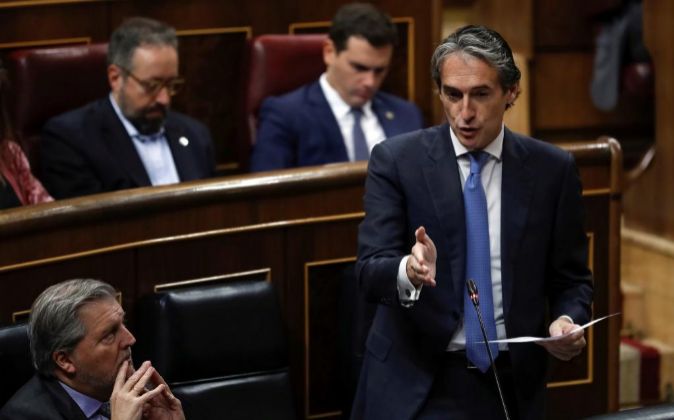This was indicated by the minister in statements to journalists a day after the Minister of Territory, Begoña García Bernal, visited the works on the platform on Wednesday, where, in line with De la Serna’s words, he referred to the approval of an agreement with Adif for the drafting of the project and execution of the works.
Likewise, he pointed out that the report of said agreement is in the Ministry of Public Works awaiting the approval of the Treasury to be able to submit it to the Council of Ministers for its final approval.
After that, the agreement will be signed and Adif will have 24 months to execute the railway connections for a value of 11.5 million euros.
“Fair and reasonable” claim
De la Serna has addressed this issue after being asked about the demonstration on November 18 to demand a decent train for Extremadura, about which he has indicated that it is a “fair and reasonable” claim, while the situation of this community is “very deficient” in railway matter.
However, he pointed out that said protest “does not alter the plans of the ministry towards this community at all, because” we were already giving it the greatest impulse known in recent history to improve and modernize the Extremadura train, and we are going to continue doing with facts, “he pointed out.
Thus, he said that a technical team is already working in Extremadura to undertake the renewal and maintenance of materials, to which he added that the location of a machinery workshop in Badajoz is “accelerating”.
In this line, he recalled that on March 1 the Talgo train will start running again between Badajoz and Madrid, whose tickets go on sale this coming Friday.
Likewise, he referred to the situation of rail freight, which he said are “very important insofar as they can connect Portuguese ports with Europe and Spain”, for which reason he is working on several fronts.
On the one hand, in the execution of the “main” corridor, which is the one that goes through Badajoz passing through Mérida, Cáceres, Plasencia and “focuses” the connection with Madrid-Seville through Talavera de la Reina and Toledo.
De la Serna has indicated in this regard that next March the laying of the track between Mérida and Badajoz will be completed and the project for the dual track between Plasencia and Cáceres will be presented. Thus, he has said that the objective of completing the works in 2019 and electrification by 2020 is maintained.
Another line that is being worked on, and whose project is going to be presented “soon”, is the direct connection with Puertollano from Badajoz and Mérida, which requires a modernization of the current line with a commitment to electrify the road, as already He made a commitment on his recent visit to the community, as he recalled.
SOURCE: EXPANSIÓN.COM


